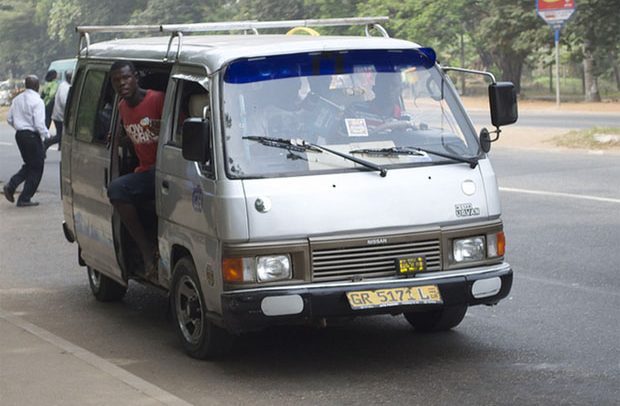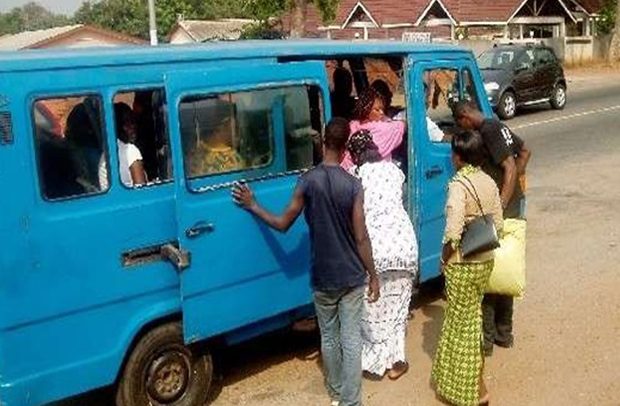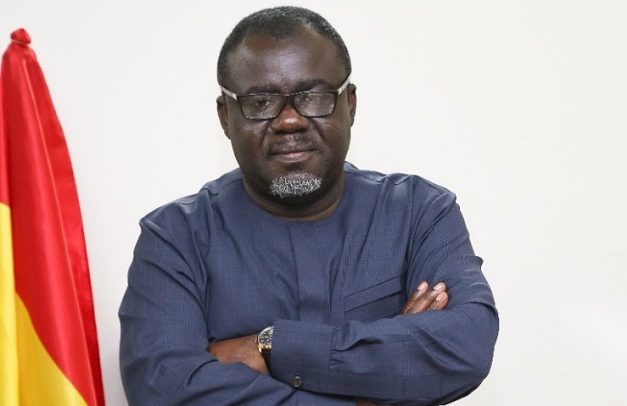
Both the government and the transport unions recently announced a 15% reduction in transport fares. But available information indicates that whilst some of the drivers have complied with the orders, others have refused to do so. Some of the drivers have also reduced the fares, but not up to the 15% announced by the various transport unions.
And this is the worry of Mr Appiah Kusi Adomako, the West Africa Regional Director of CUTS International, a leading public policy think tank and a consumer protection advocate. In a recent interview he granted to the media, which has been published on our business page today, Adomako is calling on the government to take a decisive action to ensure that consumers benefit from recent reductions in fuel prices.
He suggested that government empowers Metropolitan, Municipal and District Assemblies (MMDAs) to deregister and ban commercial drivers who refuse to comply with the 15% reduction in transport fares as announced by the Ghana Private Road Transport Union (GPRTU).
“Fuel prices have dropped significantly and GPRTU has taken the commendable step of recommending lorry fare reductions by 15%. It is only fair that passengers, many of whom are struggling with the high cost of living, should see the benefits of this reduction reflected in their daily transport costs,” he argued.
“Transport fares are one of the biggest daily expenditures for millions of Ghanaians. Any attempt to suppress a legitimate fare reduction due to falling fuel prices is simply unacceptable,” he added. He proposed a three-pronged approach to protect consumers and restore discipline in the transport system.
Among them is to deregister and ban non-compliant drivers. “MMDAs already have the mandate under local government laws to register and license commercial vehicles operating in their jurisdictions. Government should empower them to revoke the registration of drivers who refuse to comply with the new fare regime. Compliant drivers should be issued visible stickers as proof of adherence. This will allow the police and regulators to easily identify and sanction those who continue to exploit commuters.”
He also suggested that during this period of economic shift, the government should deploy Idle University Buses. “CUTS suggests that the government temporarily authorise public universities, such as the University of Ghana, KNUST, UCC and UPSA to deploy their often-idle campus buses along affected routes. This would create a buffer for commuters and put economic pressure on defiant operators to reverse course.”
In our view, Mr Appiah Adomako has hit the nail right on the head and The Chronicle associates itself with all the suggestions he has made, except the deployment of campus buses on the road. Some of the commercial drivers, due to lack of education, sometimes think that because the vehicles they are using belong to them, they can do whatever they want.
In fact, we listened to some of these drivers on some of the radio stations in Accra yesterday and their arguments were that prices of spare parts had not been reduced and that nobody could compel them to reduce the lorry fares. To them, they are operating within their own laws because nobody bought the cars for them, but they are wrong in this analysis. Though Ghana is operating a free market economy, there are rules and regulations governing the operation of every business in Ghana. These drivers cannot, therefore, be operating in isolation.
The appreciation of the local currency, the Cedi, has positively affected every business in Ghana and the Ghana Union of Traders Association (GUTA) has for instance instructed its members to reduce prices of goods on the market. It, therefore, baffles us that some of the drivers are refusing to reduce the fares when they are benefiting from the fuel reduction.
This is why we support Appiah Adomako that the various assemblies should be empowered to deregister any driver or transport union that refuses to reduce lorry fares, as they have been instructed to do by their respective unions. But whilst doing this, the government must also revive the comatose Metro Mass Company to bring the needed completion to the transport sector.
As things stand now, the sector is dominated by private individuals, which does not inure to the benefit of the entire country. Even in the advanced countries, their various governments are still playing active roles in the transport sector. It will, therefore, be suicidal for us as a developing country to think that our government should leave this crucial sector in the hands of private individuals. We hope President Mahama and his Transport Minister are listening to us.
The post Editorial: Some Drivers Are Refusing To Reduce Lorry Fares? appeared first on The Ghanaian Chronicle.
Read Full Story












Facebook
Twitter
Pinterest
Instagram
Google+
YouTube
LinkedIn
RSS